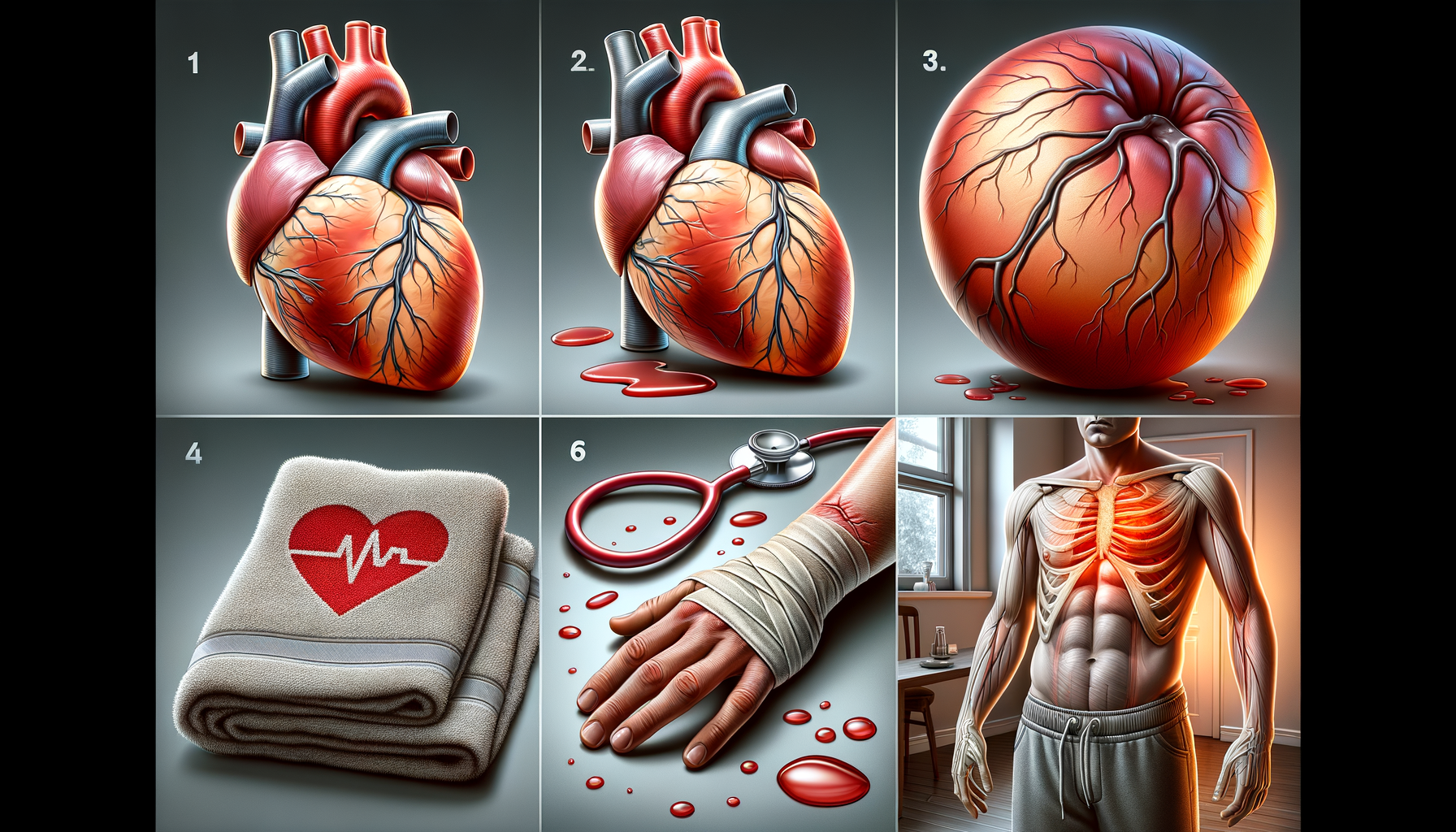
These Key Signs of a Heart Attack – (You Might Have Missed It)
Introduction: The Subtlety of Heart Attacks
Heart attacks, also known as myocardial infarctions, are often portrayed in movies as dramatic events with individuals clutching their chests and collapsing. However, reality paints a different picture. Many heart attacks begin with subtle signs that can be easily overlooked or mistaken for other conditions. Recognizing these signs is crucial for timely intervention and can be a life-saving step. This article explores some of the less obvious symptoms of a heart attack, aiming to enhance awareness and encourage prompt action.
Chest Discomfort: More Than Just Pain
While chest pain is the hallmark symptom of a heart attack, it can manifest in various forms. Some individuals experience a squeezing or fullness sensation in the chest. This discomfort can last for more than a few minutes or may disappear and return. It’s essential to note that chest discomfort doesn’t always mean severe pain; it can be a mild, nagging sensation that persists.
Aside from the classic pain, individuals may feel pressure or a burning sensation. These symptoms might be confused with heartburn or indigestion, leading to a delay in seeking medical help. Understanding that chest discomfort can vary in intensity and nature is vital for recognizing a potential heart attack.
Shortness of Breath: A Silent Alarm
Shortness of breath is another common sign of a heart attack, often accompanying chest discomfort. However, it can also occur independently. This symptom might be mistaken for anxiety or a respiratory issue, especially if it’s not severe.
Individuals experiencing shortness of breath may find it challenging to perform everyday activities, such as walking or climbing stairs, without feeling winded. This symptom can occur at rest or during physical exertion. Recognizing shortness of breath as a possible indicator of a heart attack is crucial, especially if it appears suddenly or without a clear cause.
Unusual Fatigue: An Overlooked Symptom
Fatigue is a common feeling, often attributed to a busy lifestyle or lack of sleep. However, unusual or unexplained fatigue can be an early warning sign of a heart attack, particularly in women. This type of fatigue is persistent and doesn’t improve with rest.
Individuals may find themselves feeling exhausted after simple tasks, like making the bed or walking to the mailbox. This symptom can be easily dismissed as stress-related or due to aging. However, it’s essential to pay attention to new or unusual fatigue, especially if it’s accompanied by other symptoms like chest discomfort or shortness of breath.
Nausea and Lightheadedness: More Than a Stomach Issue
Nausea and lightheadedness are symptoms that might not immediately be associated with a heart attack. They can be confused with a stomach virus or food poisoning. However, when these symptoms occur alongside others, such as chest discomfort or shortness of breath, they could indicate a heart attack.
Lightheadedness or dizziness can make you feel faint or unsteady. It’s important to note if these feelings are new or unusual for you. Nausea, particularly when accompanied by cold sweats, can be an indicator of a heart issue. Recognizing these symptoms as potential signs of a heart attack can lead to timely medical intervention.
Conclusion: Stay Informed and Act Promptly
Understanding the varied and often subtle signs of a heart attack can be life-saving. While some symptoms are well-known, others are easily overlooked or mistaken for less severe conditions. By being aware of these signs, you can take prompt action, potentially preventing more serious health consequences.
If you or someone you know experiences these symptoms, especially in combination, it’s crucial to seek medical attention immediately. Early intervention can significantly improve outcomes and reduce the risk of long-term damage. Stay informed, stay vigilant, and don’t hesitate to act when necessary.


